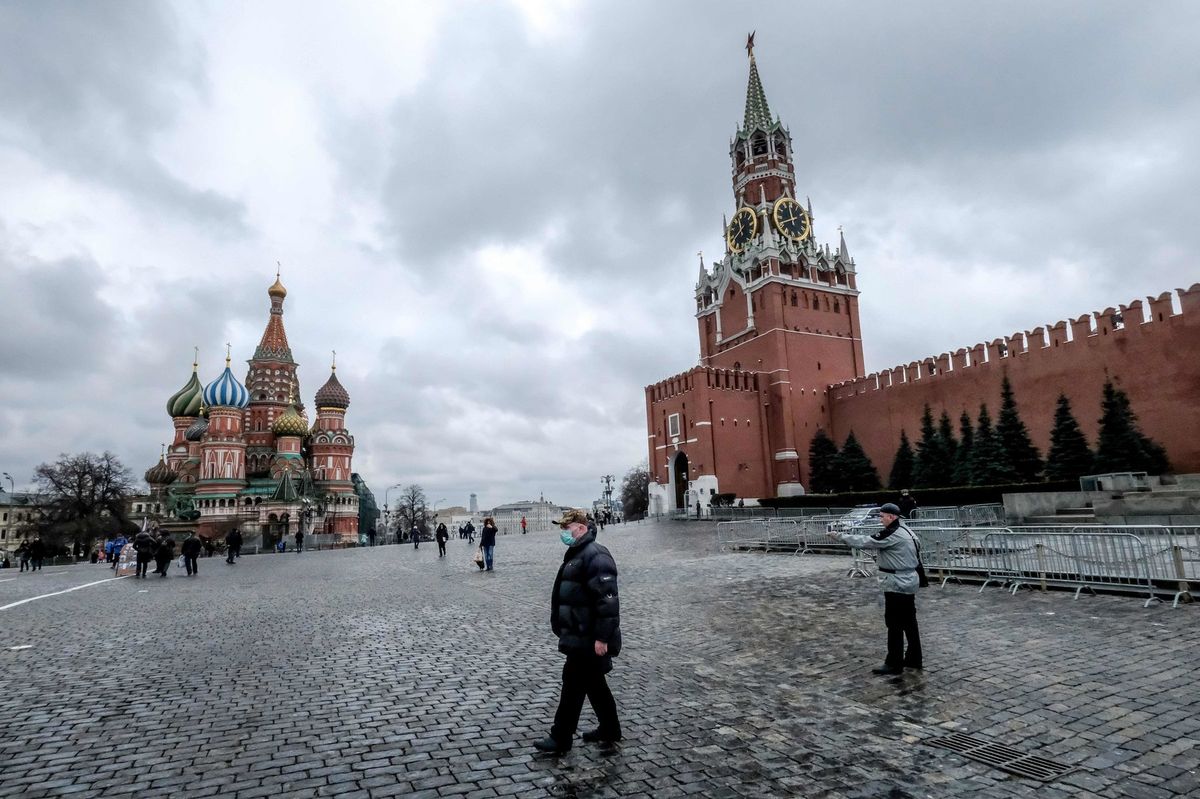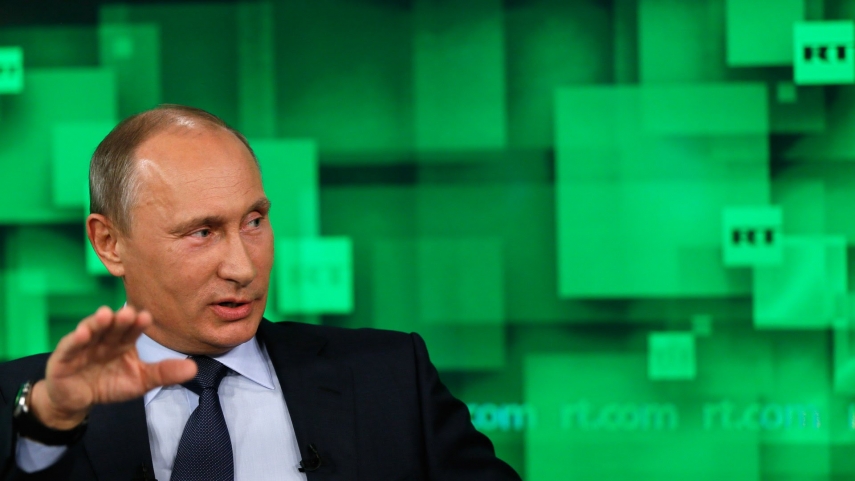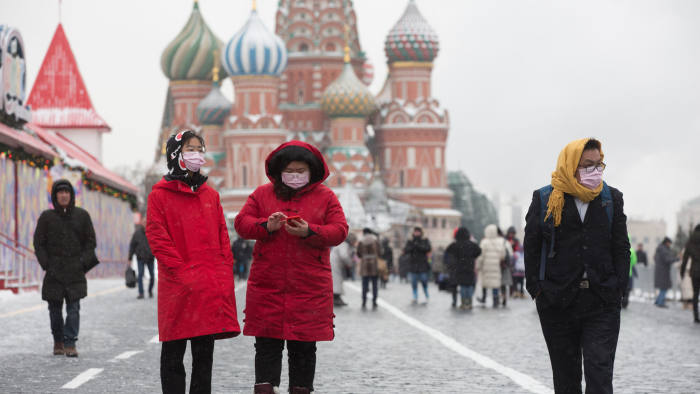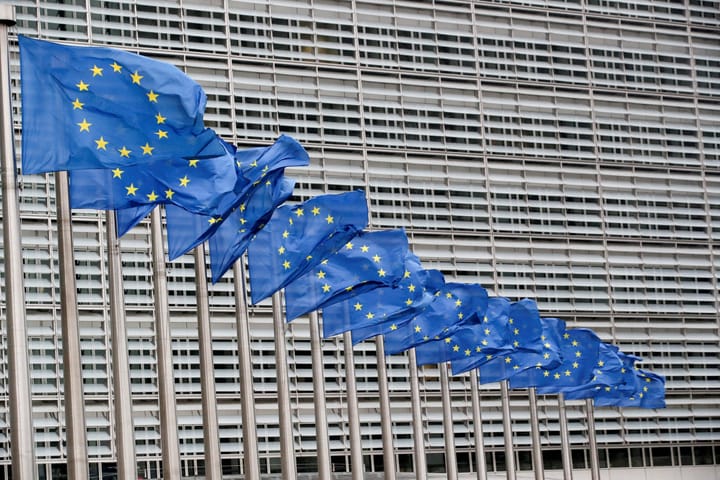Analysts warn Russia is spreading disinformation about the COVID-19 pandemic

A few minutes every morning is all you need.
Stay up to date on the world's Headlines and Human Stories. It's fun, it's factual, it's fluff-free.
New analysts are alleging that Russia is once again engaged in a disinformation campaign, this time related to COVID-19.
Despite repeated denials from the Russian government, the nation’s government has been repeatedly accused of actively spreading disinformation online, particularly during the 2016 US presidential election.
These reports come at a time when much of the world is under lockdown due to the deadly spread of the coronavirus. In America, a conspiracy theory that China intentionally developed the virus in a lab is now widely believed by 30% of the population.
Disinformation on COVID-19
According to a report by The New York Times, Russian President Vladimir Putin is actively working to sow disinformation about the disease to “portray American officials as downplaying the health alarms and thus posing serious threats to public safety.” This has been done through social media posts and official reports on Russia’s English-language news channel, RT.
If true, the coronavirus disinformation campaign bears resemblance to other campaigns Russia has been alleged to be behind. Intelligence agencies have said the purported goal of these campaigns is not about convincing people of a certain point of view, but rather to muddy the waters in an effort to create discord, uncertainty and distrust among populations towards their governments.
Putin has repeatedly disputed claims that Russia is engaged in any such disinformation campaigns, including claims specifically related to COVID-19. Others have suggested that such campaigns, even if real, have a minimal impact on people’s behavior.
Nevertheless, experts warn that Russian efforts are part of a long-term strategy on the part of the Kremlin.
If reports that Russia has targeted Spain, the United Kingdom and many of its neighboring countries are also true, it would suggest that Putin believes that disinformation campaigns are effective.
The Times’ report alleges that the coronavirus campaign is fostering a range of conspiracies, including the theory that the United States developed the virus. The Chinese government has also pushed that theory, despite scientific consensus that the disease originated naturally in Wuhan, China.
There is reason to believe that disinformation, however it is spread, is taking hold. Recent polling found that 30% of Americans believe that COVID-19 was developed in a lab in Wuhan.
As recently as April 15, President Donald Trump suggested that the virus was actively developed by Chinese scientists, a view counter to the opinion of even his own health advisors.
Putin’s role in spreading “gray propaganda”
Before Putin was president of Russia, he was an agent with the Komitet Gosudarstvennoy Bezopasnosti (KGB). The KGB is the Russian equivalent of the US’s Central Intelligence Agency (CIA).
According to The New York Times, agents were expected to spend a quarter of their time on efforts to spread disinformation.
Spreading conspiracy theories about viruses wouldn’t be new for Russian propagandists. In the 1980s, the KGB actively worked to spread misinformation and distrust around the AIDS crisis. That campaign, which the KGB has since acknowledged, was far-reaching and has similarities to the alleged coronavirus campaign.
Writing about the so-called “Operation INFEKTION,” Thomas Boghardt, an American military and spy historian, explained that the KGB’s initial efforts began in India, with an article supposedly written by an American scientist erroneously claiming that AIDS was created by the US.
This type of indirect propaganda where the source of the information is hidden is known as “gray propaganda.” Verifying the initial source of the misinformation in cases of “gray propaganda” is difficult because the information is intended to be quickly dissected by others who then spread it themselves, leaving the initial source hidden.
Many experts believe that the internet only makes this spread easier because the noise of social media helps obscure original sources.
Even before the COVID-19 pandemic, Russian propagandists were accused of spreading disinformation about vaccines to fuel the anti-vaccine debate. The online efforts artificially amplified minority opinions to prolong the debate and spread misinformation. Those efforts were linked to a severe measles outbreak in 2019 that was the result of people refusing vaccinations.
Russia Today

In the numerous reports on Russian propaganda campaigns, one news outlet repeatedly makes an appearance: RT, formerly known as Russia Today.
In 2007, Russia Today, which Germany’s Der Spiegel has labeled the “Russian state propaganda channel,” ran an eye-catching ad campaign intended to promote the channel to international audiences. Featuring an image of Soviet dictator Josef Stalin with a feather quill in his hand, the ad copy read, “Stalin wrote romantic poetry. Did you know that?”
Spiegel’s reporting equated the ad campaign to a German media outlet using an image of Adolf Hitler and saying that he also painted. Nonetheless, the Stalin-featuring campaign worked. As Russia Today’s editor in chief, Margarita Simonyan, stated at the time, the campaign “fulfilled its purpose wonderfully. The number of visitors to our website has doubled.”
The Russian government has invested heavily in the channel, which has been accused of existing to push “pro-Kremlin” talking points. Simonyan has insisted that this is an unfair characterization of the channel, saying, “I don’t get calls from the government.”
RT’s stated goal is to be a trusted news source to counter Western-bias in the news media.
Criticism of RT and Simonyan have also come from within Russia. Andrei Richter, the director of the Moscow Media Law and Policy Institute and a journalism professor at Moscow State University, has said Simonyan was given the editor-in-chief position at the channel at the age of 25 because she was “well-connected” and an ally of Putin.
Russia battles coronavirus

As Russia continues to fully deny any part in spreading coronavirus conspiracies, the country is beginning to see their own infection rates rise. As of April 18, Russia’s official count of COVID-19 cases was just above 32,000.
Putin, who had previously expressed confidence that his country was properly responding to the outbreak, is said to now be taking more serious precautions. Following in the steps of countries like China and South Korea, some Russian cities are using digital trackers to ensure citizens remain locked down.
[article_ad]
Have a tip or story? Get in touch with our reporters here!
Sign up for daily news briefs from The Millennial Source here!




Comments ()